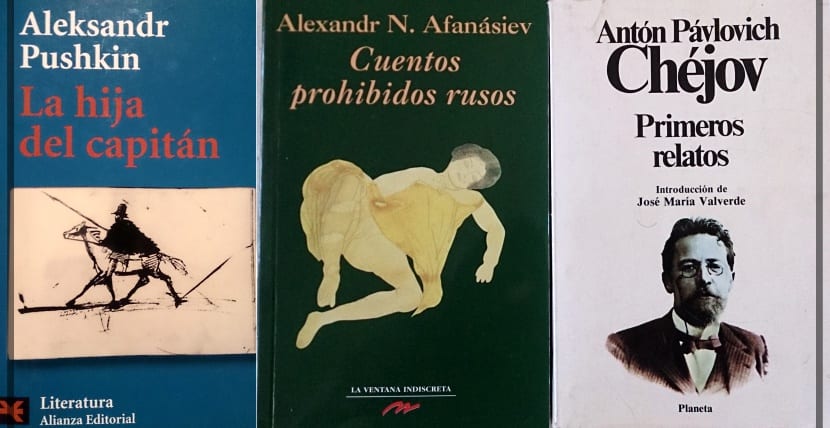
There is very little left for the celebration of centennial of one of the most important events of the last century. The October Revolution of 1917 in Russia it was marked in the history of mankind. It is a good time to review some of the big names of the extensive and special Russian literature. So we go before, to the nineteenth century, where storytellers like Pushkin, Afanásiev or Chekhov they always deserve a look.
Alexander Pushkin - The captain's daughter
Poet, playwright and novelist, Pushkin is considered the founder of modern Russian literature. His work is framed within the romantic move. He was also a pioneer in the use of vernacular in his works and his style mixes drama, romance and satire.
The captain's daughter is a historical novel, although he tells of almost contemporary Pushkin events. It is considered as one of the best in Russian literature. It was originally published in 1836 in the fourth issue of the literary magazine The contemporary y tells in fiction the real Rebellion of Pugachov happened between 1773 and 1774.
The protagonists are Piotr Griniov and Maria Ivanovna, whose love story goes through various vicissitudes, from the Pugachev Rebellion to the end of it, with Empress Catherine on the throne. Sieges, fights, friendships and betrayals, enemies that later become friends and vice versa, duels and rescues. But above all that love story that comes to fruition at the end.
Alexander Afanasiev - Russian forbidden tales
Afanásiev (1826-1871) is also known as the "Russian Grimm". It is possible that this story collection it is, next to the one made by the Grimm brothers, the longest there is. However, its content is nothing like the Grimm texts.
The Russian forbidden tales are a collection of short stories that the author collected from anecdotes of the middle and lower class of XNUMXth century Russia. It includes Russian, Ukrainian and Belarusian short stories and was first published between 1855 and 1863. The first copy was published in Geneva in 1872, one year after the author's death.
These stories eschatological content and more pornographic than erotic, they also have a touch of humor and anti-clericalism, which meant that the work was censored in tsarist Russia. Some of the stories (with more than explicit titles) that it includes are: The woman and the bear The louse and the flea, The pussy and the ass, Wash the ass !, The marriage of the fool, The hot cock, The first meeting of the boyfriend with the girlfriend, The excited young lady, Story of the priest who gave birth to a calf, Warm me up! And so on until 78 stories.
Anton Chekhov - First stories
Chekhov is considered the great russian tale master. He was a doctor, writer and playwright and is included in the more psychological current of realism and naturalism. He dominated the short story like no one else and is also one of the most important not only Russian writers of the XNUMXth century.
Since 1879 Chekhov studied medicine at the University of Moscow. It was when he began to collaborate writing in various magazines. He also drew up these first stories, which appeared published in the newspaper oskolki, St. Petersburg newspaper. Chekhov died on July 15, 1904 in the German spa of Badenweiler due to tuberculosis at the age of 44.
In each of these stories you can see that mastery in emotional nuances and in the psychological portrait of characters. He opted for a critical approach in their texts, which are full of sensitivity and sense of humor. His stories, light and fast in tone, make us smile. But it is when we finish reading that that humor turns into horror when we understand that we have also witnessed a whole tragedy of human nature.
Some titles of the stories are: (1883) The curved mirror, Joy, The dowry, The daughter of Albion, The calumny, In the sea (story of a sailor), The consultation. (1884) The decoration. The singers, Surgery, From the frying pan to the embers. (1885) The Captain's Uniform, The Corpse, The Hunter, The Writer, The Mirror, An Expensive Dog.